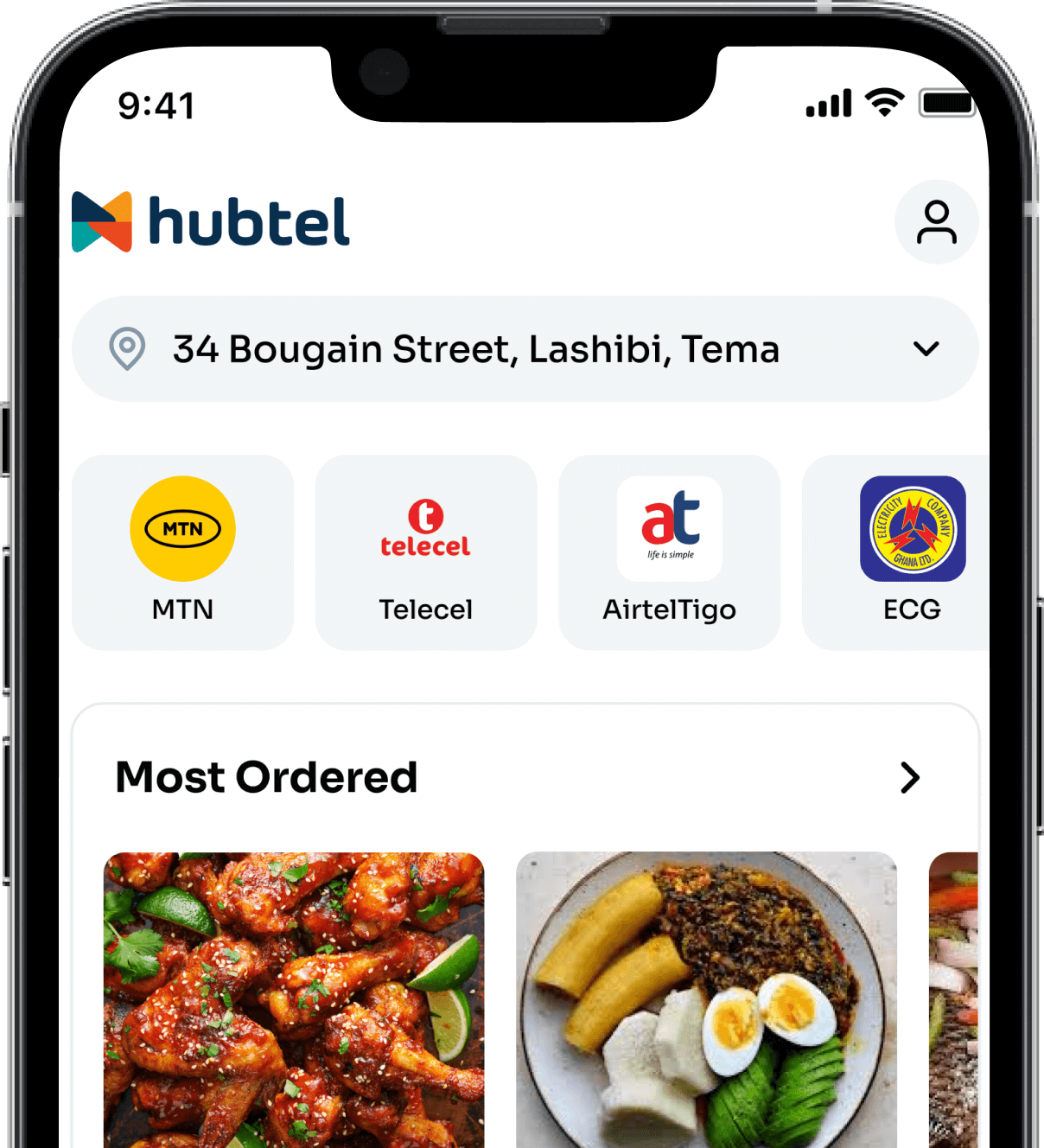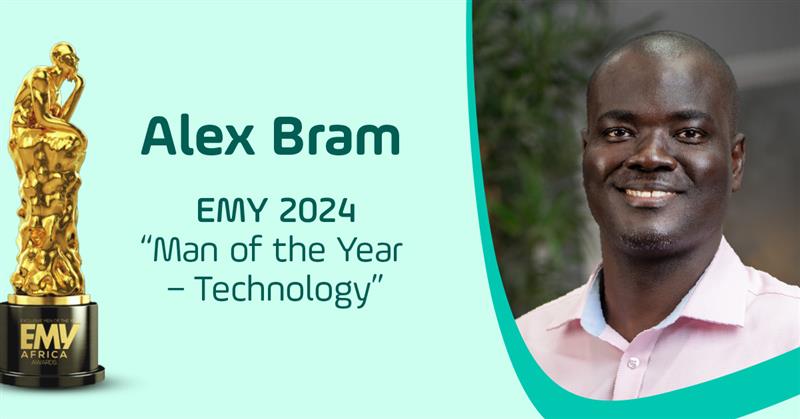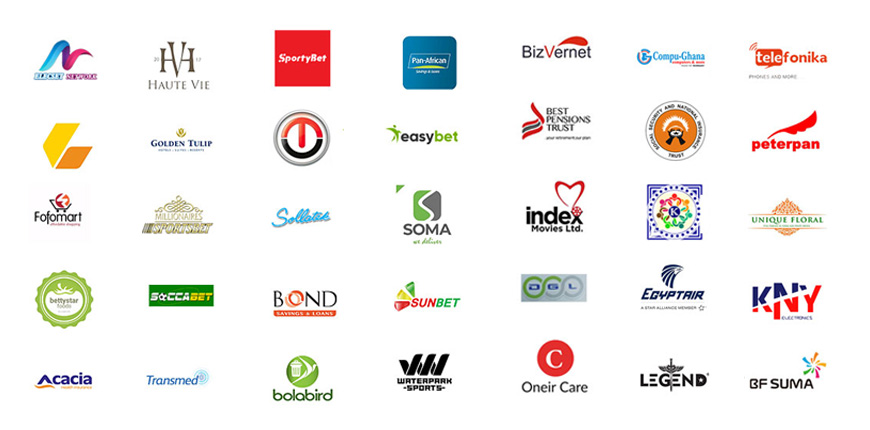Author: Hubtel
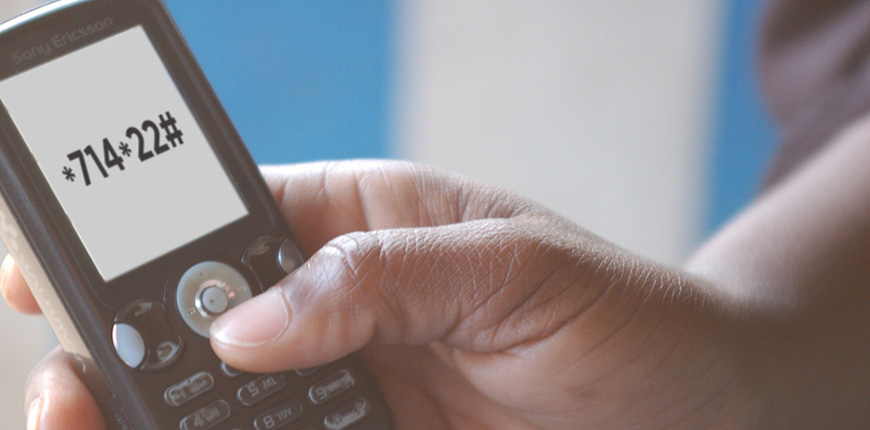
MYtxtBOX Releases New Instant Top-Up Option Via USSD – *714*22#
December 9, 2015 | 2 minutes read
MYtxtBOX has just introduced a new way to top up credits via USSD. This additional top-up option offers users an effective means of purchasing MYtxtBOX credits with mobile money specifically through MTN and Airtel mobile wallets.
MYtxtBOX offers various mobile communication options for brands, businesses, and consumers to engage with their customers and contacts via text, multimedia, and recently voice messaging options.
MYtxtBOX provides a host of options for users to top up credits on their accounts. Before now customers could top-up via 5 main options:
- Direct bank deposit
- Direct mobile money deposit
- Purchasing top-up credits vouchers
- Credit/debit cards
- Payment via MPower
With this new top-up option, users can now perform 2 key functions on the go:
- Check their existing balance
- Top up an amount via Airtel Money or MTN Mobile Money
The top-up process can be completed in 5 simple steps:
- Dial *714*22#.
- Follow the USSD prompts.
- You will receive a payment bill prompt on your phone.
- Enter your mobile money pin.
- Follow the prompt to accept the payment request.
Logging in to MYtxtBOX after this process indicates the new credit balance at the top right corner of the page.
The key benefit here is the ease of the process. It can take place on nearly every phone and does not require internet connectivity. This allows for convenience and a great deal of time, money, and effort is saved. Businesses and consumers can now enjoy the comfort of directly topping up their messaging credits with their mobile devices regardless of location and timing.
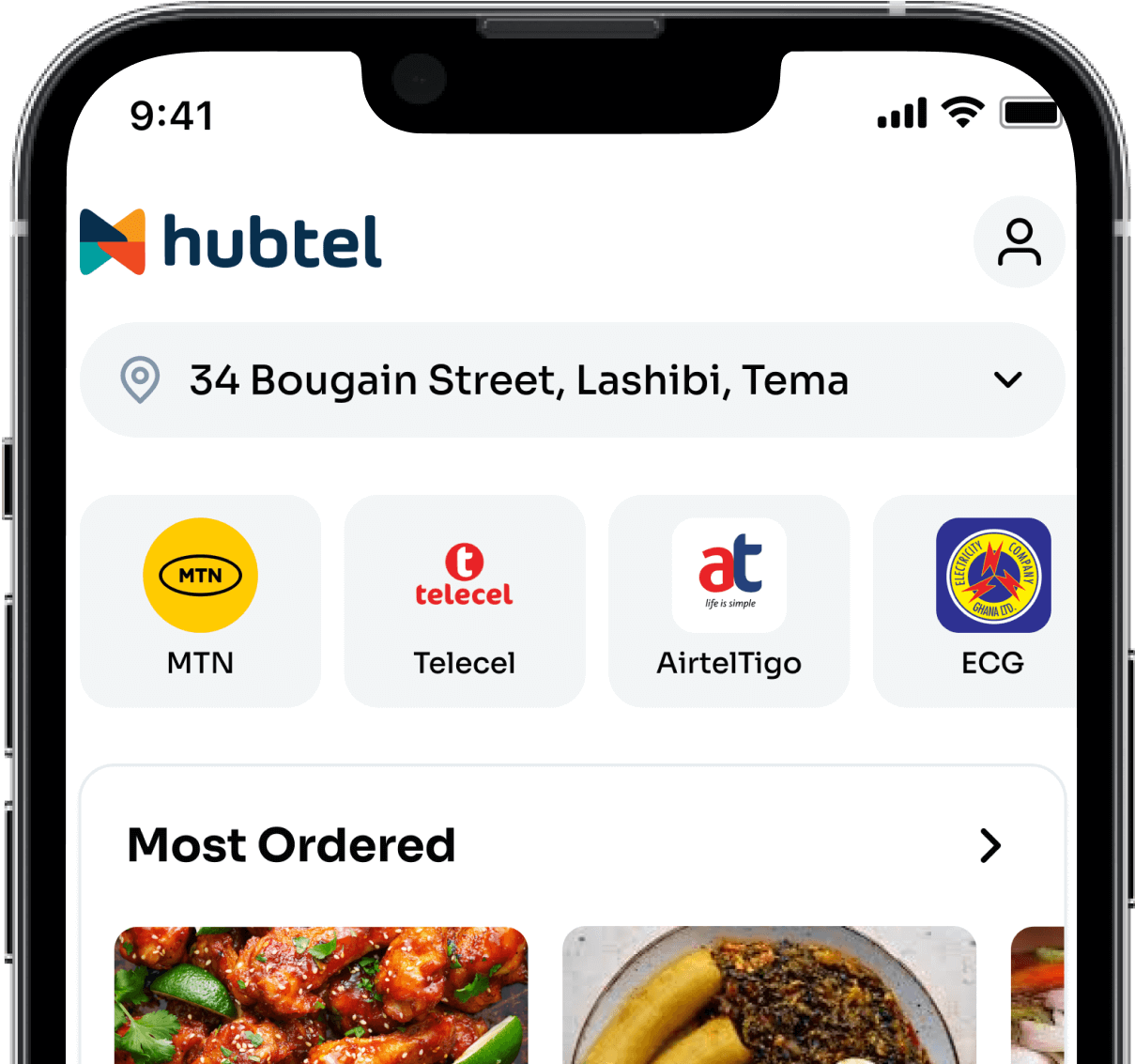
Related
Hubtel and Alex Bram Earn Double Nominations at Ghana AI Awards 2025
March 26, 2025| 2 minutes read
Hubtel Attains ISO 27001:2022 Certification
February 24, 2025| 2 minutes read
Celebrating Leadership: Alex Bram Awarded EMY 2024 "Man of the Year – Technology"
December 31, 2024| 2 minutes read

Five years ago, banking clients in Nairobi had to spend an hour queuing to pay their utility bills. Fast forward to the present day, and these clients can now pay their bills at the touch of a button from the comfort of their home.
The digital economy is creating a watershed moment for the banking industry, and – in many ways – clients in Africa are at the forefront of these changes with their widespread adoption of mobile phones.
High expectations
Across the globe, increasing numbers of people are now accessing financial services from their mobile devices, their expectations set to ‘high’ by digitally native technology players, like Alibaba and Apple.
Client loyalty is built on ease of use, security, 24/7 access and a fuss-free user experience. In banking, it’s about clients being offered the most relevant savings and credit cards, based on their past usage. For example, if you have just received a bonus and are looking to grow your wealth, you will want to be offered an investment product that fits your risk profile.
The lesson for banks is clear: value your interactions with clients – especially via digital channels – and invest in data analysis. Clients will be loyal to a bank that knows them and makes banking convenient and easy.
The race to deliver the best digital client experience is particularly intense in Asia and Africa, where a new generation of young, affluent clients are coming to the fore. The number of middle class households in key Sub-Saharan African countries is set to grow rapidly. These households will be digitally savvy and more likely to embrace new types of financial service providers, including those outside the banking industry.
The future is here
In the past five years, Sub-Saharan Africa has been the fastest-growing region in the world for mobile telephony, paving the way for a proliferation of mobile wallets. In Kenya, around 18 million adults, or 85 per cent of the population, now use mobile money services, such as M-Pesa, Mobikash or Airtel money.
When it comes to digital banking in Africa, things are changing fast too. Imagine sitting in a taxi in Lagos traffic: you log on to your mobile device, and see all your banking activities at a glance. You have a question about what investment options are available to plan for your future, so you press a button to talk to your relationship manager. Via video, your relationship manager links you to an investment advisor, who answers all your questions and gives you options that meet your needs. This will be the norm not too far in the future.
Clients are expecting banks to reverse the service pyramid: instead of being offered digital channels incrementally, they want to receive all services digitally in the first instance.
At Standard Chartered, we are changing our business model fundamentally, to be ‘digital by design’, but we acknowledge that to move nimbly and bring more convenience to clients, we need to partner financial technology companies in niche areas.
In Africa, we have teamed up with mobile payments aggregators, such as Selcom in Tanzania, Cellulant in Kenya, Zambia and Botswana, and eTranzact in Nigeria and Ghana, to enable bill payment on mobile from our clients’ bank accounts; client transactions via this channel are increasing by over 50 per cent annually. We have also made it easier for our corporate clients to make mobile-wallet payments to individuals, whether or not they have bank accounts through our Straight2Bank Wallet mobile app.
Banks need to jealously guard their reputation as trustworthy counterparties and custodians – virtues that are increasingly valuable in a digital economy beset with trust and privacy issues.
There are challenges to getting it right, but the good news for clients in Africa is that they are certain to be the big winners as banks invest to understand and serve them better.
By Karen Fawcett, CEO (Retail Banking, Standard Chartered)

Related
Hubtel Celebrates 20 Years of Connecting Businesses to Communities
March 27, 2025| 3 minutes read
October 11, 2019| 2 minutes read
October 4, 2019| 2 minutes read

Fairy lights on Christmas trees can cause slower broadband speeds, according to Ofcom.
The communications watchdog says wireless networks in homes and offices are often set up incorrectly or they’re suffering from “interference” from electronics with wiring like baby monitors and things like microwaves.
Ofcom has launched a free app called Wi-Fi Checker which allows you to test the quality of your signal and ways to make it better.
Here’s our 10-point guide to making your signal strength stronger.
1. Upgrade your router
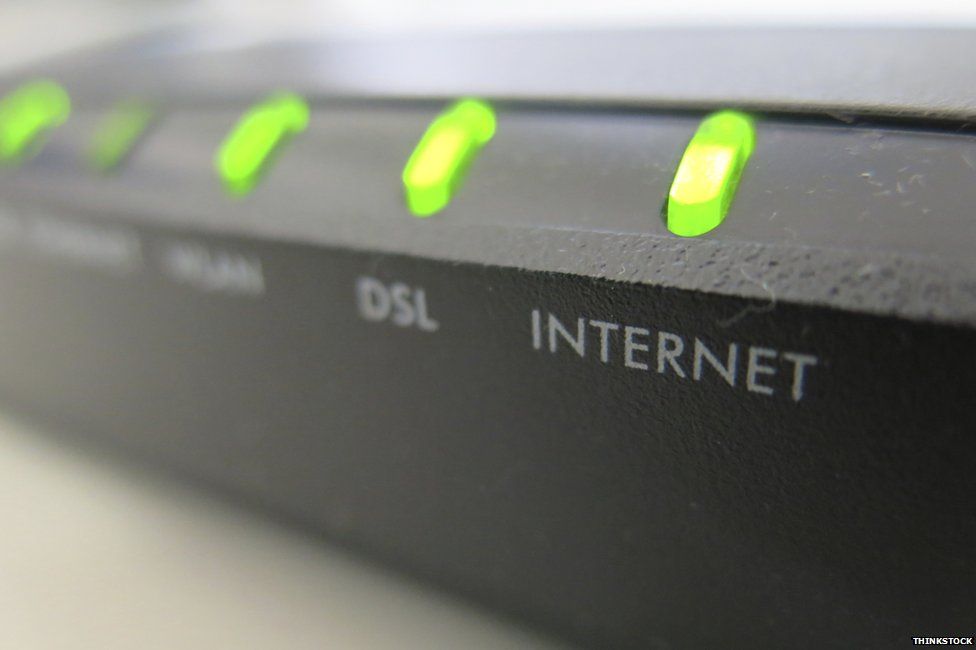
The routers that come with your broadband packages are fairly decent these days.
But if you want a really fast wi-fi connection at home, why not ask for a new router for Christmas?
The latest bits of hardware will make your broadband go further and perform better.
2. Move your router

Probably best to make sure your router doesn’t have a plant on it
This may be common sense to some but the higher up, the better.
So put your router on the top floor of your house if you can, on top of furniture and near the middle of the house. And keep it off the floor if you want a decent signal.
But you’ll obviously have to think about how practical that may be as the router needs an Ethernet cable, power, and/or coax.
3. Change the channel on your router
This one’s a bit more technical, but most routers these days come with dual bandwidths (look in the booklet your hardware came with).
Basically – most routers run on the 2.4GHz frequency – but so do many other household appliances like microwaves, baby monitors, Bluetooth, CCTV, and cordless phones.
If you change to the 5GHz frequency you should have less interference. Your neighbor will also probably still be using 2.4GHz as well, so that’s one less source of interference – or in this case “contention”.
4. Cut down on interference (attenuation)
Lots of things can affect your Wi-Fi signal, which is why Ofcom mentioned fairy lights.

Make sure your cat doesn’t interfere with your signal either…
But any electrical cable can have a negative impact if they’re in the way – as can metal doors, aluminium studs, wall insulation, water (fish tanks, etc), mirrors, halogen lamps, filing cabinets, brick, glass and concrete.
Anything that affects signal strength is actually called attenuation – just so you know.
5. Update your software
Make sure your router has the latest updates.
Software is improved constantly plus the newest mobiles and laptops will obviously connect at higher speeds to a stronger wi-fi signal.
More important though is what’s called Signal to Noise Ratio (SNR) which will actually determine the data speeds at which a device will connect.
Just because you can see five bars on your device doesn’t mean you’re guaranteed high data rates.
6. Think about extenders
Extenders work by pushing your existing signal further. You can use older routers to do this for you, but it’s a bit technical to hack into them.
The easiest thing to do is to buy an extender, or even better, use powerline technology.
That’s when you plug an adapter into your mains sockets and the Wi-Fi is amplified using the electrical wiring in your walls.

Probably best not to use the household wiring if it looks like this though…
Also, if you have an older router with antennas, you can buy better ones.
7. Share with your neighbours?
If you live in a block of flats and get on with your neighbours, you could share a shiny new router.
That way the person at the top of your block (see point two) could beam Wi-Fi into the rest of the building and you share the cost. But if you live at the bottom you may get a weaker signal.
You could also use your phone or laptop as a hotspot or get MiFi.

If there’s someone using lots of bandwidth in the house (we’re thinking gamer or heavy video streamer), you can also use Quality of Service to prioritise what gets the best Wi-Fi signal.
8. Secure your wi-fi
If you don’t like your neighbours, or if you just want a more secure network, use a different Wireless Security Protocol – WPA/WPA2 instead of WEP (this is quite complicated but basically just search for your router online and ask the web how to change it).
Quiz fact: WEP is Wired Equivalent Privacy and WPA is Wi-Fi Protected Access.
You can also limit the number of devices your wi-fi will support with something called MAC addresses (media access control addresses). Again there are lots of self-help guides online.
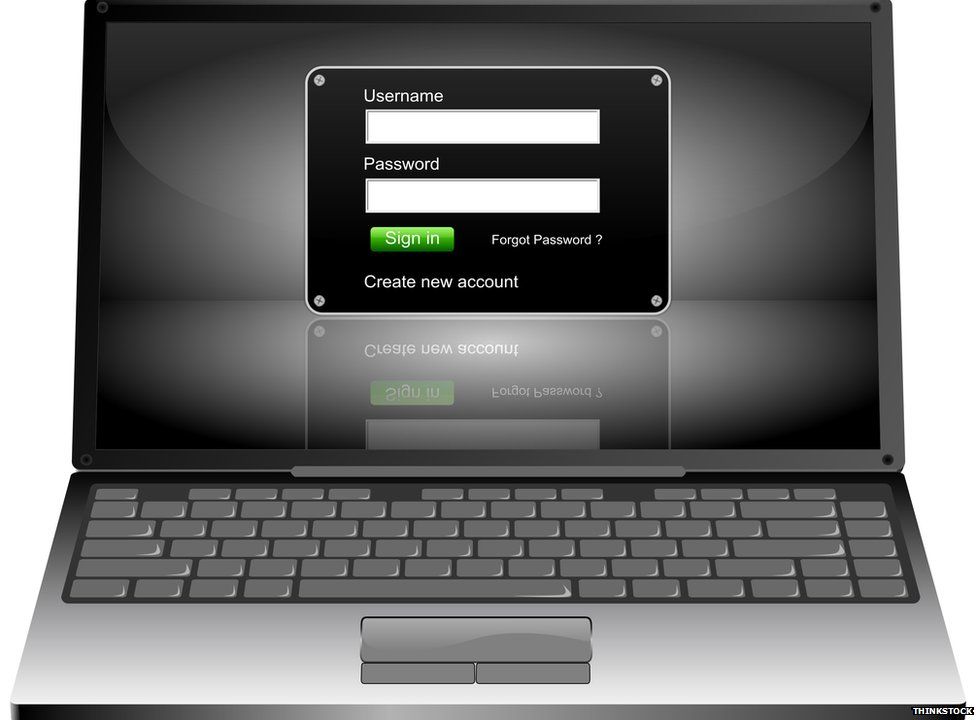
9. Don’t publicise your signal
You know when you search for public wi-fi and it comes up with lots of options (depending on where you live obviously)?
Well, if you haven’t secured your network, other people can obviously use your wi-fi signal.
You can make your network private by adding a password but you can also make it even more secure by going to your administration page and unchecking “Enable SSID Broadcast”.
This will take your signal off most people’s wi-fi smartphone lists but there are apps that can find your “hidden” signal.
10. And if all else fails… use tin foil
This one’s a bit more left field, and seemingly unproven, but seems to work sometimes.

Just get some tin foil from your kitchen, curve it around the back of your router, and away you go.
You may want to download a free Wi-Fi speed-checking app to test signal strength before and after.
People have also used a variety of other metal objects behind their routers from beer cans to sieves and graters. We’ll leave that one up to you.
Credit: BBC Newsbeat

Related
Hubtel Celebrates 20 Years of Connecting Businesses to Communities
March 27, 2025| 3 minutes read
October 11, 2019| 2 minutes read
October 4, 2019| 2 minutes read
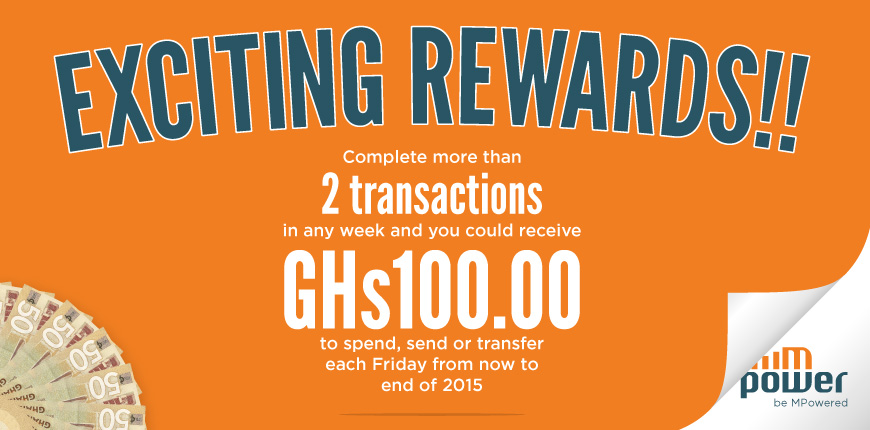
MPower Payments is rewarding users for their loyalty in using its payment services. To achieve this, MPower will be giving out rewards in the form of funds to several account owners.
MPower is an online payments service in Ghana offering a complete end-to-end web and mobile payment transactions solution to enable consumers and businesses to send, spend and receive money.
The rewards have been packaged as a standard amount of GHs100 for selected users who keep an active MPower account. The goal here is to reward active users hence the selected user must have completed at least two transactions within the week of selection.
Transactions performed on MPower currently take place in 3 main ways:
- Users transfer/send money or tokens to other accounts including MPower, bank, and the various mobile wallets of local network operators.
- Users also make payments to merchants:
- Purchasing products from online stores that have integrated MPower as a payment option.
- Paying for services from providers who accept remote payments via MPower.
- Purchases on MPower CornerShop:
- Airtime top-ups for all networks
- Internet bundles purchases
- Utility bills payments
- Vouchers vended by services
Users can also initiate another transaction type by making requests to other account owners via PayPal, mobile money wallets, and MPower tokens using the receive money feature on MPower.
Fees and charges that apply per the various transactions performed are listed on the MPower Service Fees page.
The giveaway/offer, which began on October 30, 2015, is set to run weekly till the end of December this year; coinciding with the gifting tradition of Xmas and New Year holidays.
Selections will be made each Friday and payouts will occur instantly to furnish the recipient’s MPower account with the reward. This amount can be spent in the same way as regular funds on MPower.
The MPower service is accessible via web at www.mpower.com.gh and also via mobile on MPower’s android application.

Related
Hubtel and Alex Bram Earn Double Nominations at Ghana AI Awards 2025
March 26, 2025| 2 minutes read
Hubtel Attains ISO 27001:2022 Certification
February 24, 2025| 2 minutes read
Celebrating Leadership: Alex Bram Awarded EMY 2024 "Man of the Year – Technology"
December 31, 2024| 2 minutes read

The second Ghana eCommerce Expo was officially opened today, 10th November 2015, by the Deputy Minister of Communications, Hon Felix Kwakye-Fosu. The theme for this year’s conference is: “Unleashing Ghana’s Online Potential” and the event is scheduled to run for two whole days at the Accra International Conference Centre.
Organized by OML Africa, the Ghana eCommerce Expo is a prestigious event for the online business industry.
Over 40 exhibitors made up of eCommerce websites, digital payment providers, software developers, telcos, etc are displaying their cutting-edge solutions to the burgeoning Ghanaian eCommerce market.
The conference running the exhibition is being addressed by 18 experts in the eCommerce industry. Speakers include Haris Broumidis(CEO, Vodafone); Cherian Mathew (V Partner, QNET); Sandra Owusu-Kyerematen (Country Manager, Tonaton); and many other reputable luminaries in the field.

Related
Hubtel Celebrates 20 Years of Connecting Businesses to Communities
March 27, 2025| 3 minutes read
October 11, 2019| 2 minutes read
October 4, 2019| 2 minutes read

Businesses have been urged to introduce electronic payment systems to improve the services they render to their clients.
The Chief Technology Officer of MPower Payments Limited (MPL), Mr Alfred Rowe, said although businesses had moved in quickly with the proliferation of the Internet and were using it to expand their services to reach customers and interact with them, businesses had not innovated around payments.
“We have all been to websites where you fill some forms and when you finish they tell you to find one of their branches and make payments. So you see it defeats the full purpose of going online. What’s the use for a customer to come online, perform a service, and then cannot pay but has to manually enter a premises to complete payment,” he said.
He was speaking at Joy Technology Innovative Summit (JOTIS 2015) at the Kofi Annan ICT Centre in Accra on October 20. He urged businesses in Ghana to set up dedicated technology departments for e-payment to help customers take advantage of it.
E-payment system is a way of paying for goods or services electronically, instead of using cash or cheque, go in person or by mail.
The system is generally categorized into four, namely, credit card and debit cards, electronic cash, micropayment systems, and session-level protocols for secure communications.
Mr. Rowe said, unlike the early 90s when people went to the post office to mail letters, the invention of email had overtaken the way the postal system worked.
“Now there are generations who have not written letters before because of email. What email did to the postal system e-payment is going to do the same to cash, going forward. It will get to a point where normal day-to-day transactions will be done electronically because the average modern-day customer is a very digitalized customer who pays school fees, bills, and other services electronically without spending time,” he said.
He said e-payment had many advantages and was transforming businesses such that some traditional businesses had expanded their service delivery to make more revenue.
“A traditional business like the Electricity Company of Ghana (ECG) has expanded its service delivery to customers electronically. From the comfort of their homes, customers can now pay for their bills. What this means for ECG is that it can sell to customers at all times. It means business is now 24 hours and is not limited to location,” he said.
The Chief Executive Officer of SOFTtribe, Mr. Herman Chinery-Hesse, said most of the challenges confronting developing countries could be solved through simple technology and that it did not require big industries to solve them.
He advised up-and-coming technology innovators to avoid innovations that required large organizations of governments.
“The reason why I say this is that from experience it’s a very challenging environment and need to avoid plenty of problems. So if you can avoid it and rather come out with ideas that address the problems of the masses, or else the process of getting it into use may be long and you may be disappointed,” he said.
He said young innovators should again avoid developing technology programs that required permits or changes in law and must also avoid cut and paste.
“A lot of our young people come and chat with me and say I just invented something but they describe and you realize it is something you have read about before. It’s like re-hashing Michael Jackson’s song. Dishonesty kills innovation so you actually have to innovate properly,” he said.
Source: GhanaWeb

Related
Hubtel Celebrates 20 Years of Connecting Businesses to Communities
March 27, 2025| 3 minutes read
October 11, 2019| 2 minutes read
October 4, 2019| 2 minutes read

“Take Advantage Of Our Robust Infrastructure” — MTN Urges Businesses
October 19, 2015 | 3 minutes read
Telecom giant MTN has urged small and medium enterprises (SMEs) and large corporations to ride on the robust infrastructure it has built over the years to propel their businesses to new heights.
Samuel Addo, General Manager MTN Business — the business unit of MTN Ghana — who focused on providing businesses and institutions with combined network and IT infrastructure, made the call at the 2015 MTN Business Fair held recently at the La Palm Royal Beach Hotel, Accra.
“As a testament of our continuous investment in the right infrastructure for the industry, MTN emerged the only mobile operator to have excelled in the first-ever data quality of service test conducted by the NCA, our regulator, in the two upper regions of Ghana.“
It is against this backdrop that we continue to call on all to ride on the robust infrastructure we have built over the years to propel your businesses to new heights,” he told exhibitors and other stakeholders at the fair’s opening ceremony.
He called on all gathered to take the opportunity of the fair to apprise themselves of the plethora of products, services, and technology available on MTN’s platform. “Indeed, there can be no better time to take advantage of MTN’s technological innovations than now.”
The MTN Business Fair is an initiative by MTN Business Ghana to bring together SMEs and corporate organisations to empower their businesses so as to maximise productivity and enable and inspire growth.
Under the theme ‘Sharing the Values of Growth for Businesses’, exhibitors were Sci-Fi Webtech, Fidelity Bank, Forum Networks, and SMSGH (1188 Directory Services).
Mr. Addo explained that the theme underscored the primary aim of the MTN Business Fair, which is to demystify the bouquet of technology solutions available for businesses and showcase the wide variety of technologies, products, and services available to businesses.
The fair has already been to the Eastern, Western, and Ashanti Regions, where MTN and its partners interacted with various businesses to understand and share ideas on the way forward.
“We have no doubt that through these interactions we can transform our businesses, reduce our operational expenditures and, more importantly, maximize the benefits from using the right technology in our businesses,” he added.
He assured us that the MTN Ghana Business Fair has come to stay and will serve as a platform that continually explores ways of staying in touch with the business community.
“MTN finds it necessary to interact with the business community to establish itself as the place where individuals and organizations from the corporate world meet to take advantage of the varied, tailor-made solutions and products that MTN Business offers to optimize the productivity of SMEs and expand their businesses.”
He added that just a few days ago MTN attained its fifteen millionth subscriber — a historical feat that affirms the fact MTN leads in voice and digital innovations in the industry.
Other speakers including Sofiene Marzouki, Managing Director of Hello Foods — an online food ordering marketplace that connects customers with restaurants — lauded MTN’s efforts in helping businesses operate smoothly through its products and services on offer.
“As an online food-ordering marketplace, the integration of MTN mobile money has helped improve our operations in terms of online payment and enhanced higher customer satisfaction,” he said.

Related
Hubtel and Alex Bram Earn Double Nominations at Ghana AI Awards 2025
March 26, 2025| 2 minutes read
Hubtel Attains ISO 27001:2022 Certification
February 24, 2025| 2 minutes read
Celebrating Leadership: Alex Bram Awarded EMY 2024 "Man of the Year – Technology"
December 31, 2024| 2 minutes read
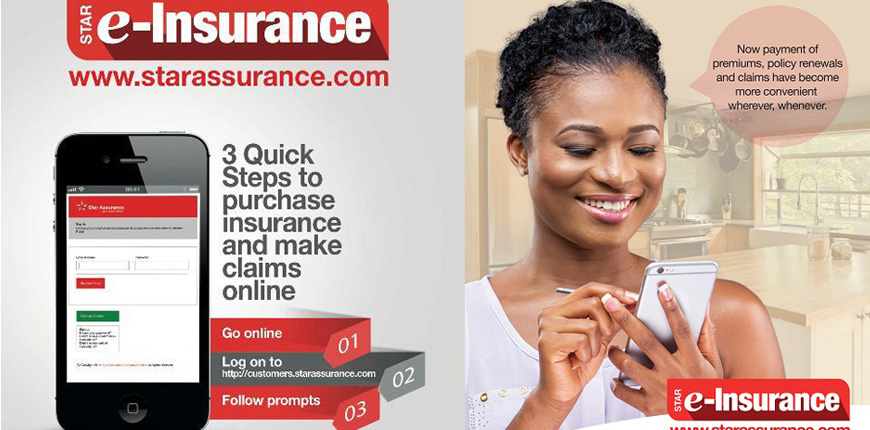
Star Assurance Ghana Makes Insurance Possible Online – From Payments To Claims
September 15, 2015 | 1 minute read
Star Assurance, the nation’s solid yet dynamic partner in insurance, has announced the launch of its e-Insurance platform – the Star e-Insurance.
Star e-Insurance is an online platform that will allow customers to seek for quotations, purchase insurance policies, renew policies and also make claims; in totality manage their accounts.
All one needs is internet access, and wherever you are, you can access Star e-insurance on your computer, phone or tablet at www.starassurance.com.
The e- insurance platform was developed by SMSGH and has been well laid out to offer customers optimum convenience as they take care of their insurance needs online.
Star Assurance wants to see many smile as they insure. All should therefore come on board and insure with Star Assurance on its e-Insurance platform.
Star e-Insurance; Possible Anywhere, Anytime.

Related
Hubtel Celebrates 20 Years of Connecting Businesses to Communities
March 27, 2025| 3 minutes read
October 11, 2019| 2 minutes read
October 4, 2019| 2 minutes read

MPower Payments Removes Debit Card Top Up Charges, Adds Slack Integrations
August 31, 2015 | 3 minutes read
A lot of talk has been going on about how soon it will be till Ghana gets access to payment options that work outside of Ghana. In mid-2013, PayPal opened up its services to a host of African countries, Ghana excluded. We sobbed.
Amidst the various campaigns and petitions, PayPal seems a bit too busy to care about the cry of Ghanaians. However, also in Ghana is a budding payments processing platform, MPower Payments platform, jointly run by Encodev Labs and SMSGH.
MPower Payments is a complete end-to-end online and mobile payment solution for consumers and merchants. MPower offers various payment options that allow you to send and receive money by integrating seamlessly with your preferred mobile or digital wallets, and bank accounts. The web and mobile versions come with a built-in feature known as CornerShop which is convenient for airtime purchases and payments of bills for several utility services.
MPower has come a long way over the years, helping Ghanaians to pay for services and send money across the various mobile money systems in Ghana. Back story: MTN first introduced Mobile Money in Ghana, then Tigo and Airtel followed. Just about a month ago, Vodafone introduced Vodafone Cash and Airtel introduced its Tap-To-Pay systems. Considering that these three telecom networks are powering the mobile money system in Ghana, MPower Payments’ presence helps customers to send mobile money across these networks easily.
Another major helpful feature that MPower supports is to top up your MPower wallet via a debit card. This has been an issue since most of banks charge transactional fees when you make such top-ups. And now it’s free! About two weeks ago, MPower announced to customers that topping up via their debit card is now free.
This has been received favorably and helps make the barrier to adoption almost non-existent. In effect, you can now send mobile money to another mobile money subscriber for free even if you’re not a registered mobile money user. This initially attracted a charge of 5%.
Later last week, the CTO of MPower Payments made an announcement which will excite most developers who use MPower Payments – they now have Slack integrations. So much has been talked about Slack’s success and secret sauce and its ease of use, I need not say more. This integration will make it way easier to track payments, without having to comb through SMS and emails.
For a product that needs a lot of user-friendliness and education in the customer journey to be adopted, these subtle but important changes will surely increase its adoption now that Ghana doesn’t have any “internationally acclaimed” payment options in place. This a good one from the folks at MPower Payments.

Related
Hubtel and Alex Bram Earn Double Nominations at Ghana AI Awards 2025
March 26, 2025| 2 minutes read
Hubtel Attains ISO 27001:2022 Certification
February 24, 2025| 2 minutes read
Celebrating Leadership: Alex Bram Awarded EMY 2024 "Man of the Year – Technology"
December 31, 2024| 2 minutes read

SMSGH In The News – How Ghanaian startups are making an impact on the global stage
August 3, 2015 | 7 minutes read
“Startups are the seed corn of the future economy,” our partner Steve Case, co-founder of AOL and chairman of Case Foundation, often says.
Today, Silicon Valley is envy of the entrepreneurial world, but 50 years ago, Silicon Valley was apple orchards. Detroit, then the wealthiest city in the US in terms of median income because it was the center of the half-century’s greatest innovation (the car) has now slipped to becoming the poorest major city in the US, because it stopped innovating.
As we’ve traveled from Kenya to Ghana, we’ve seen how planting seeds in an entrepreneurial ecosystem can really mature.
The first thing to know about the Ghanaian startup ecosystem is that the Ghanaian economy is itself a startup. The country only adopted capitalism in 1992, so only one generation has lived in a free-market society.
But the new next generation is fully embracing startups and the country is on the move.
We visited SMSGH, a ten-year-old startup employing dozens of people and powering mobile transactions across East Africa; DTRT, a manufacturing factory employing hundreds of people in great working conditions; nine exciting companies pitch in the ImpactHub Accra; followed by a very fun happy hour that felt more like a beach party than a networking session.
Nairobi vs Accra
If you simply compared first impressions from Nairobi and Accra, you might have thought the startup ecosystem was really rough around the edges here in Ghana. But to me, the Kenya to Ghana transition was encouraging.
Ghana today, seems not too far away from Kenya five years ago. Back then, Erik Hersman and his team were solidifying the iHub. About 20 investment groups that are now active in Kenya were not active then, and the entrepreneurial ecosystem was fragmented.
Based on the evidence of promise we saw in Ghana today, Accra can get there.
1. Local investment is impressive
We spent several days with local investors: the Oasis Fund, the African Angels Network, and Eric Osiakwan, who has a Steve Case-like reputation in Ghana as the startup champion in the country.
One of the more difficult conversations I had to have over the years in Kenya — where the ecosystem is thriving — is with local Kenyan investors. In Kenya, successful businesspeople do not invest in startups very often. It is difficult sometimes for me to justify why we invest internationally in Kenya when successful local entrepreneurs won’t do it.
Now, that is changing. And Julian Kyula of MODE, who partnered with us on the Pitch for Impact competition in Kenya is a great example — but in Ghana, successful business people have been investing in startups for quite a while.
As a few examples: the Oasis Fund has 40% of its limited partner base in-country; the Ghanaian angels’ network has over 25 locals who have done a deal in the last two years, and Eric Osiakwan walked us around SMSGH — one of his portfolio companies — as a bigger cheerleader than the CEO.
One Ghanaian said that local self-reliance, as a relatively closed economy, was an important trait for a very long time. And in Africa, when it comes to locals investing in the next generation, Ghana may well be leading the way.
2. Culture and policy both pose challenges and opportunities.
At the same time, Ghana still has a long way to go. Unlike Kenya, where entrepreneurship is encouraged, stepping out and starting your own company isn’t in Ghana.
Whether it’s cultural or whether it’s a vestige of a socialist system that didn’t reward the free market, one entrepreneur said: “In Ghana, everyone is afraid of getting too big.”
Policy and economic conditions are difficult too. Kwami, whose company, Moringa Connect, is a great agribusiness that mentioned how difficult startup investment was to raise for one major reason—bank interest rates are 28%, and it’s difficult even for an exceptional startup to outperform that.
Yet despite these challenges, Ghana has several local conditions that make it globally competitive. The factory we visited, DTRT, can employ hundreds of people in quality working conditions and sell to major US retailers because Ghana’s port is a free trade zone (a vestige of Ghana’s exports of coffee and other cash crops), and also has an agreement with the US to not impose tariffs on imports of the 48 poorest countries in Africa.
Ghana has the ability to create 1 million manufacturing jobs, estimated our leader at DTRT—thanks to policy that supports small manufacturing businesses.
Finally, while Ghanaian culture could be a challenge, its creativity and vibrancy also have major advantages. We had a breakfast with creatives from across Ghana, which is becoming a burgeoning fashion and entertainment industry. The talk was about An African City (Ghana’s Sex in the City equivalent), where the producer joined artists, fashion designers, and more to show off Ghana’s edge in cultural leadership.
3. Great assets can make Ghana globally relevant
Despite the challenges, at a spirited dinner, businesspeople and investors were bullish on Ghana’s prospects. In discussing the entrepreneurial potential of Africa, they settled on the KINGS (Kenya, Ivory Coast, Nigeria, Ghana, and South Africa) as the top five highest-potential entrepreneurial ecosystems, and Ghana ended up third.
How come? Ghana had strong assets that were exportable across Africa and the world: the most educated population in Sub-Saharan Africa, an English language background, relatively good infrastructure, a good and functioning port, and more.
In the Pitch for Accra competition, we saw these assets on display. Farmerline, which delivers information to farmers over mobile — helping them to increase their income through better understanding of crop prices and more—is off to a great start in Ghana and importing to East Africa.
Flippy Campus, a mobile solution that helps schools manage information (replacing paper noticeboards), is building on Ghana’s asset of having the best educational system in Sub-Saharan Africa.
And amazingly, Bitsoko, a blockchain-powered financial services solution, that has an early customer in a food market in Detroit — helping power the entrepreneurial revolution that is rebuilding a once-great American city.
African solutions are not just solving problems in Africa, but helping around the world.
4. Africa keeps going
The winner of Pitch for Accra was Yago Baatuolku, a wonderful leader whose company, Wanjo, produces juice sourced from 250 women farmers in Ghana. Ghana is one of the leading juice consumers worldwide, and if Ghanaians only drank juice produced in Ghana, they would send US$ 250 million a year to farmers. Currently, it’s only US$ 10 million.
Yago has a wonderful business but never felt like she was ready to pitch. When Sheila Herrling of the Case Foundation encouraged her to be “fearless” and pitch, though, she brought down the house, treated the happy hour to Wanjo juice, and took home a US$25, 000 investment.
“I’m so glad I decided to show up,” she said. In a culture that doesn’t always encourage entrepreneurs, showing up is critical.
We asked the CEO of SMSGH what advice he would give — 10 years in — to a Ghanaian entrepreneur starting out. He said, “Just keep going.” He said that there would be a lot of social, cultural, and maybe even political pressure to slow down, not get too big, not get too visible, and a lot of unexpected bumps along the way. The only reason he was able to build a company was that he kept on going.
If Ghana just keeps going, and Africa just keeps going, we’ll see a transformed ecosystem and Ghana can move light years in the next five years. Who knows what we can see in the next 50 years.
Source: Ventureburn

Related
Hubtel and Alex Bram Earn Double Nominations at Ghana AI Awards 2025
March 26, 2025| 2 minutes read
Hubtel Attains ISO 27001:2022 Certification
February 24, 2025| 2 minutes read
Celebrating Leadership: Alex Bram Awarded EMY 2024 "Man of the Year – Technology"
December 31, 2024| 2 minutes read

Extending The Frontiers Of Organisational Communication; Ghana’s SMSGH Introduces Online Voice Messaging
May 5, 2015 | 2 minutes read
In the 21st-century world of business communications, an organization’s chances of survival and success are heavily reliant on its ability to communicate effectively. To achieve a business’ communication objectives, be it among internal staff, partners, or customer engagement activities; speed, clarity, and relevance are three underlying tenets that need not be overlooked.
Traditional communication mediums such as face-to-face meetings, telephones, noticeboards, newspapers, mail, fax, radio, and TV are among the most effective channels in use. Yet rapid advancements in technology have improved the speed, reach, and storage capacities of newer channels like Instant Messaging (IM), email, and bulk SMS. Voice Messaging is one such channel gaining recognition as a preferred medium for broadcast marketing since it yields higher deliverability which leads to greater conversions.
With Voice Messaging the recipient does not require internet connectivity. The message is delivered in a simple fashion similar to a normal phone call. When a target recipient’s phone rings and the call is accepted, the voice clip automatically plays prompting the user for an action. Thus Voice Messaging is a faster and clearer form of communication; where done right can motivate a series of desired user actions.
SMSGH a leading Telecom Value Added Services (VAS) provider in Africa recently released a new Voice Messaging feature on MYtxtBOX; a suite of web tools for business communications.
The service is among the first of its kind open to users working with a set of Ghanaian recipients’ contacts list. The service is currently accessible on www.MYtxtBOX.com with free trial options for both new and existing users. There are limitless possibilities to the application of Voice Messaging and it is worth taking some time to explore some of its uses as it relates to the core operations of your business.

Related
Hubtel and Alex Bram Earn Double Nominations at Ghana AI Awards 2025
March 26, 2025| 2 minutes read
Hubtel Attains ISO 27001:2022 Certification
February 24, 2025| 2 minutes read
Celebrating Leadership: Alex Bram Awarded EMY 2024 "Man of the Year – Technology"
December 31, 2024| 2 minutes read

SMS vs. Push Notification vs. Email: When should you use what?
February 10, 2015 | 7 minutes read
SMSGH BlogPost: A main concern for many companies is evaluating the best communication technique to increase customer engagement. How do you convince customers to interact with your product in the most contextual manner?
Email, push notifications and SMS are all popular methods of communicating with customers, but it can be tricky to discern when to use what while maintaining a good balance of delivering the right information at the right moment – all without sounding spammy.
Mobile has become the most impactful communication platform due to its massive growth over the past five years, clocking in an impressive 85 percent penetration rate with just Generation Y alone. The ability to reach customers directly on their smartphone can help boost visibility as long as their devices are powered on.
To keep customers coming back to your app, your communication methods must provide the most value at any given time. So what are the benefits of each medium?
Here are some recommendations on when to use SMS, push notification and email.
SMS
Approximately 90 percent of SMS are read within the first three minutes of delivery. This messaging channel should be used to deliver business-critical information to provide a superior user experience to your customers.
Sending an SMS when a delivery is arriving or when your item is ready for pick up keeps customers in the loop and allows them to feel more at ease. For example, Uber sends riders text messages when their ride requests are accepted and when drivers have arrived, giving customers time to prepare and look out for their rides. The SMS also prompts customers to browse the app to see their driver’s current location, photo, car make and license plate.
Aside from important contextual information, SMS APIS can be used to enable two-way communication between companies and their users in a comfortable and hassle free environment. By providing a communication channel that is familiar to users, companies can engage with their customers on their terms.
The combination of a high engagement rate (open and read) and global reach, also makes SMS an attractive choice for user authentication. Scenarios such as number verification and two-factor are prime uses for SMS because it can reach everybody, everywhere, in a familiar way.
Companies like Google, Facebook, and Apple do this well by allowing users to choose to receive an automated text message containing a PIN verification code. Once customers receive the code, they can input it via another channel (such as a Web form or app) to confirm their identity.
When shouldn’t it be used?
SMS shouldn’t be used for information the user will need to reference later, such as receipts or confirmation codes. Compared to emails, SMS are easier to delete and harder to search through. Any information sent by SMS should be readily actionable in a short timeframe.
Lastly, SMS can only contain a maximum of 160 characters, which limits you on the amount of information communicated to the user. SMS should mainly be used for critical information requiring the user to take an action, such as notifications, alerts, two-factor authentication, etc.
Any special considerations?
Try to avoid embedding links into SMS for devices in emerging countries where the user might not have a data plan or Wi-Fi to access the link, as this may result in frustrating your customers. Frustrated customers are not a good thing.
If a link is crucial to the message, make sure that the landing page is mobile-friendly.
Lastly, if your users are scattered around the globe, make sure that your campaign provider is capable of sending SMS messages globally – without delay and in the right timezone. Again, because SMS is the most time-sensitive channel, all communication with overseas userbase should be sent at the hours users are awake.
Email
Email should be used when communicating basic information which is not time-sensitive. Use email for things that users need to go back to at some point in time. This includes successful signups, confirmations, reference codes, orders and receipts.
Anything account-related and changes in service should also be communicated via email. User achievements or milestones can also be sent via email as they may want to keep them as badges of honor.
When in doubt, ask yourself the question, “will the user need this at some point down the line for reference?” If the answer is yes, then email away.
When shouldn’t it be used?
Email shouldn’t be used for urgent actionable items. Zipstripe found that the average time for recipients to view an email message is as long as 6.4 hours.
With this in mind, it would not be appropriate to notify people via email that their food delivery or mode of transport has arrived, as they might not see the notification in time. Promotions with a tight redemption period, e.g. a couple of hours, also shouldn’t bet delivered via email as the user might not see the message in time.
Any special considerations?
When sending an email, make sure your app/company is properly labelled as the sender so users don’t think it’s spam. If you want to it to come from a specific person, always include the app name as well e.g. James from CoolApp so the user recognizes the sender.
If your email has links inside, make sure it’s viewable on a mobile device, as your users may check it on the go.
Push notification
Push notifications work by sending a message to the notification center or status bar of your user’s smartphone and is the default way of communication for apps on smartphones.
It is considered less intrusive than SMS because it can be delivered on the user’s screen without interrupting their current activity, and it will never incur a cost to the user. It also makes it easier for the app developer as users automatically opt in to push notifications when downloading the app.
However, caution should still be taken when sending push notifications, as the user may revoke the apps permission push notifications.
Push notifications should be used when a significant event or activity occurs within the app that requires the user to perform an action, or is a time-sensitive piece of information that will benefit themr. Examples would include messages from other users, reminders for certain tasks, new in-app content and special offers.
When shouldn’t it be used?
Like SMS, push notifications shouldn’t be used for information that the user will need to reference later on. The ephemeral nature of push notifications mean they will disappear as soon as the user swipes left or clears their notifications. It is the easiest out of all three mediums to delete after reading.
Push notifications also shouldn’t be used to promote third party products, even the ones that partner with your app, as it will be seen as too intrusive and irrelevant.
Any special considerations?
Keep the push notifications brief. Remember, the user will see the notification flash at the top of their phones while possibly being in the middle of some other activity, so keeping it simple will resonate better with your users.
Push notifications allow you to get personal with your customers. You can use them to add strong calls to action to increase user engagement. For example, instead of saying ‘The weather forecasts rain,’ you can add personality by prompting users to ‘Bring an umbrella! It will rain today’ instead.
Finally, don’t oversend. The fact that push doesn’t interrupt user activity is not a license to overdo them. It only takes a few annoying, irrelevant notifications to prompt them to disable the function altogether.
The difference is in timing
Ultimately, timing plays the largest role between the three messaging channels. If you are trying to send information to existing customers about your product, push notifications and email are the ways to go.
But for larger audience reach, timeliness and important information delivery, SMS provides the urgency and flexibility to give customers valuable content at the most precise time.
Culled from The Next Web (with much thanks to Mr. Maximus Ametorgoh)

Related
Hubtel Celebrates 20 Years of Connecting Businesses to Communities
March 27, 2025| 3 minutes read
October 11, 2019| 2 minutes read
October 4, 2019| 2 minutes read





